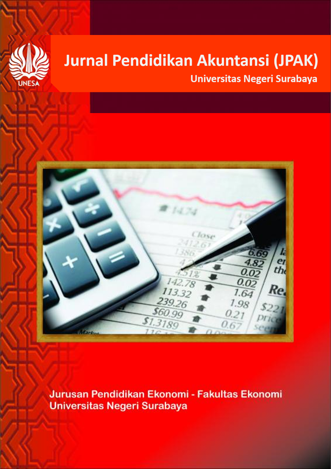Pengembangan E-Modul Kontekstual Akuntansi Perbankan Syariah Kelas XI Berbasis Flip Pdf Professional
DOI:
https://doi.org/10.26740/jpak.v9n1.p79-87Keywords:
Sharia banking accounting; e-modul; contextualAbstract
This research aims to develop teaching materials for Islamic banking accounting contextual e-module for class XI semester 1 with the help of professional flip pdf applications. The development of e-modules is based on the challenges of 21st century learning innovation, the absence of technology-integrated learning media so that online learning in the Covid-19 pandemic does not run effectively, and there is no learning media that contains basic competencies coherently. This research uses the Analysis, Design, Development, Implementation, Evaluation (ADDIE) model. Collecting research data using review sheets and validation sheets of experts as well as student response questionnaires. The subjects of this research trial were 10 students of SMK Negeri 2 Mojokerto. The results showed that the product was very feasible. Product eligibility is calculated based on the material feasibility average, graphic feasibility average, and language eligibility average. Student response to the product is very good and very feasible. Based on the results of the feasibility of the products of the experts and the student response tests, it shows that the product is very suitable for use as teaching materials in the 21st century era.
Downloads
Downloads
Published
How to Cite
Issue
Section
License
Authors who publish with this journal agree to the following terms:
- Authors retain copyright and grant the journal right of first publication with the work simultaneously licensed under a Creative Commons Attribution License that allows others to share the work with an acknowledgement of the work's authorship and initial publication in this journal.
- Authors are able to enter into separate, additional contractual arrangements for the non-exclusive distribution of the journal's published version of the work (e.g., post it to an institutional repository or publish it in a book), with an acknowledgement of its initial publication in this journal.
- Authors are permitted and encouraged to post their work online (e.g., in institutional repositories or on their website) prior to and during the submission process, as it can lead to productive exchanges, as well as earlier and greater citation of published work (See The Effect of Open Access).

Jurnal Pendidikan Akuntansi (JPAK) is licensed under a Creative Commons Attribution-NonCommercial 4.0 International License.
 Abstract views: 1492
,
Abstract views: 1492
, PDF Downloads: 1042
PDF Downloads: 1042



